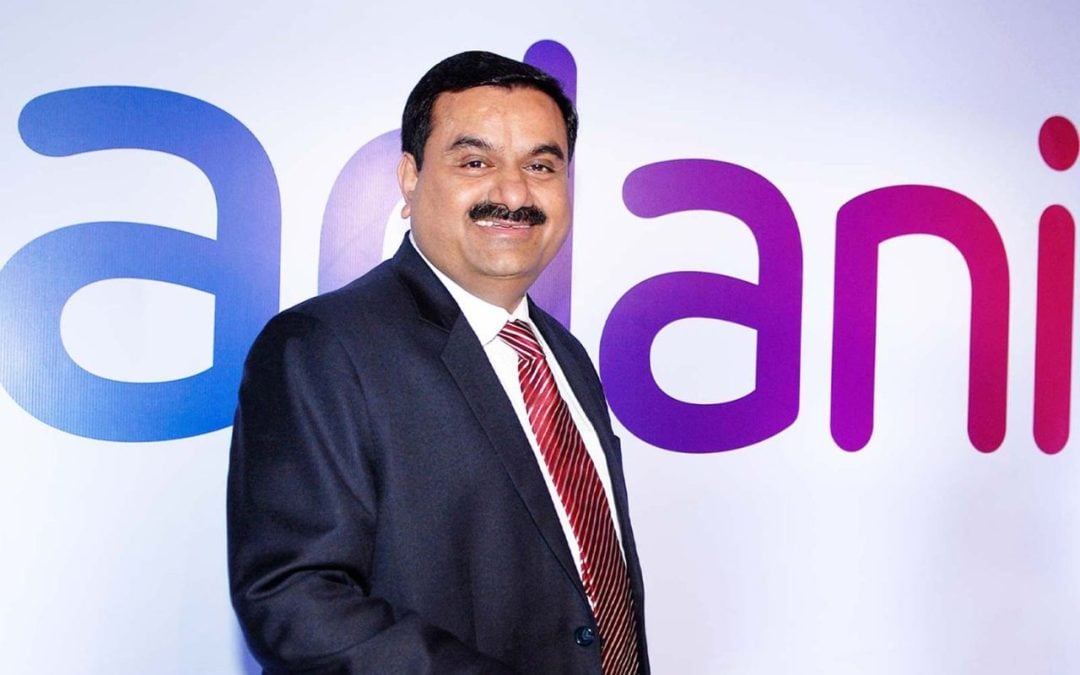Over the past few years, India has witnessed a clear trend of large conglomerates separating their businesses to unlock value and provide each vertical with sharper strategic focus. Investors generally favour pure-play companies because they offer clearer financial visibility, improved capital allocation, and stronger management accountability.
This trend is visible in groups like Reliance, ITC, L&T, and Aditya Birla, which have pursued demergers across telecom, hospitality, tech services, and fashion. Adani Enterprises, with its broad portfolio, has similarly incubated high-growth verticals such as Adani Connex and Adani Airports, both of which could potentially operate as independent entities in the future.
Among its diverse businesses, Adani Connex and Adani Airports are emerging as fast-growing verticals with the potential to function independently. Adani Connex is capitalising on India’s rapidly expanding data-centre market, spurred by the adoption of cloud services, AI technologies, and government incentives.
Meanwhile, Adani Airports continues to expand operations across multiple airports, benefiting from rising passenger traffic and upcoming projects such as the Navi Mumbai airport. Both verticals are positioned for substantial growth and could attract significant investor attention if separated from the parent company.
Adani Connex
AdaniConneX, a 50:50 joint venture between Adani Enterprises and EdgeConneX, was established to transform India’s data-centre ecosystem. The venture aims to create a one-gigawatt data-centre platform that prioritises environmental sustainability and social responsibility, combining Adani Group’s robust infrastructure expertise with EdgeConneX’s global experience as one of the largest private data-centre operators. In a market driven by digital adoption, AdaniConneX is positioning itself to deliver advanced solutions aligned with India’s evolving technological ambitions.
The company recently entered a strategic partnership with Google to develop India’s largest AI-focused data-centre campus in Visakhapatnam, Andhra Pradesh, accompanied by green-energy infrastructure.
This initiative represents a multi-dimensional investment of roughly USD 15 billion over 2026-2030, featuring gigawatt-scale operations supported by a subsea cable network and clean energy, specifically designed to handle high-demand AI workloads in India.
Operationally, AdaniConneX is building a nationwide network spanning Noida, Mumbai, Pune, Hyderabad, Visakhapatnam, and Chennai, with a strong focus on uptime and renewable-energy integration.
Planned capacities include 33 MW in Chennai, 50 MW in Noida, 48 MW in Hyderabad, 96 MW in Pune, and 30 MW in Navi Mumbai. Construction phases vary across sites: Chennai and Hyderabad are in Phase II, Navi Mumbai is actively under execution, and Noida has completed core and shell development for 40 MW, with mechanical, electrical, and plumbing work in progress.
Current operational capacities stand at 17 MW in Chennai, 10 MW in Noida, and 9.6 MW in Hyderabad. Pune’s first-phase 9.6 MW facility is nearly ready, with Pune-I at 97 percent and Pune-II at 93 percent completion. The venture has already secured over 210 MW of tied-up capacity and maintains 100 percent uptime across Chennai, Noida, and Hyderabad, with the long-term goal of building 1 GW of renewable-powered data-centre capacity by 2030.
Adani Airport Holdings
Adani Airport Holdings Ltd (AAHL), incorporated in 2019 as a wholly owned subsidiary of Adani Enterprises, marks the group’s entry into the airports sector. The company operates and develops eight airports, including Ahmedabad, Lucknow, Mangaluru, Jaipur, Guwahati, Thiruvananthapuram, Mumbai International Airport (74% stake), and Navi Mumbai International Airport (74% stake via Mumbai International Airport Ltd). AAHL has become India’s largest airport infrastructure company, accounting for 23 percent of passenger footfalls and over 29 percent of air cargo traffic.
A major milestone was achieved with the inauguration of the greenfield Navi Mumbai International Airport on October 8, 2025, which is set to commence operations from Q3 FY26.
During Q2FY26, the company added seven new routes, eight new flights, and welcomed a new airline. Its H1FY26 revenue mix highlights a balanced growth across segments: Aero contributed 38 percent, up 22 percent year-on-year, supported by tariff order revisions across four airports and an Aero YPP of INR 485, a 20 percent YoY increase.
Non-Aero operations accounted for 48 percent, rising 36 percent YoY, driven by digital initiatives and duty-free penetration, achieving Non-Aero IPP of INR 614, up 34 percent YoY.
Other revenue segments grew 98 percent YoY, while cargo revenue contributed six percent, increasing 14 percent YoY, with Ahmedabad airport cargo volumes up 11 percent. The company caters to 23 percent of India’s passenger base, 22 percent of air traffic movements, and 29 percent of total cargo volume, highlighting its dominant position in the sector.
-Manan Gangwar
Disclaimer

The views and investment tips expressed by investment experts/broking houses/rating agencies on tradebrains.in are their own, and not that of the website or its management. Investing in equities poses a risk of financial losses. Investors must therefore exercise due caution while investing or trading in stocks. Trade Brains Technologies Private Limited or the author are not liable for any losses caused as a result of the decision based on this article. Please consult your investment advisor before investing.


